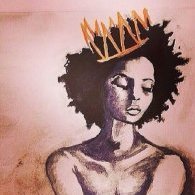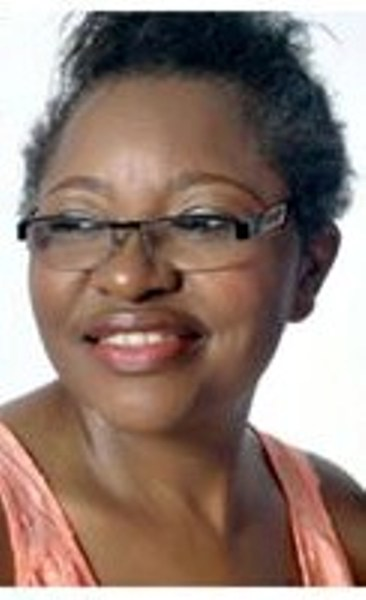Search the Community
Showing results for tags 'gay in nigeria'.
-

Nigerian gospel singer whose nude photos leaked online speaks out
FlyJ posted a topic in Latest News and Gist
Collins Gideon, a Nigerian gospel minister whose naked photos were published online by blackmailers, has spoken out about what truly happened and how the incident affected his life. He was labeled as homosexual, disowned by his family and forced to drop out of university. In November of last year, Gideon’s nude photos were circulated on blogs and gossip websites, which labeled him as gay and ignored his side of the story. Gideon, a gospel singer, spoke to NoStringsNG about what really happened: He was blackmailed and set up by a close friend whom he had known and trusted. He said: “It all came as a shock to me. The person who leaked the pictures online was a very good friend of mine whom I have known for a very long time. I did not know that he was that bad until he did what he did to me.” His then friend, the blackmailer, wanted money and had everything planned together with his friends. “He invited me to his house; it was actually my first time visiting him since we became friends as I have always been busy with school and all. At first, when I arrived, there was no one around except him. After a while, a group of other boys came around and, after a few minutes, they started asking me a lot of personal questions. They asked about my phones and gadgets and why I did not come along with them. It was strange, as I did not know them and I was surprised about how they got to know that I had the things that they were asking for. “One of them closed the door, and they forced me to remove my clothes, I refused and they pulled it off by force. They started taking pictures with their phones and said that they were going to release them online if I do not pay them to have them deleted. I did not have the amount of money that they wanted so they released them.” At first, Gideon said, he was unaware that the pictures had been released online and his family had already seen them. Not until one of his cousins called to notify him did he find out what was going on. “My cousin saw it on my [online] wall and called me. I had been offline because I did not have internet data at the time. But when I subscribed, I went online and saw that it was already posted on my wall and it had already gone viral. The comments broke my heart. “My family called a meeting and disowned me. They said that they do not want to have anything to do with me and withdrew all their support, including from my education. I was in my 200 level at the Delta State University, but now I have dropped out and moved to Lagos, where I am living with a friend.” Gideon said that ever since the incident, things have been very difficult for him. He tried to reach his family several times to apologize, but they have refused to forgive him. “It has now become clear that my family does not want to have anything to do with me anymore. Things have become very difficult for me. I hope to go back to school if I have the support. But right now, to survive, I just started teaching in a private school,” he said. Source -

Meet the Nigerian feminist who is fighting for LGBT equality in Nigeria
FlyJ posted a topic in Latest News and Gist
Nigerian human rights activist and feminist Dorothy Akenova shares her personal story about growing up and reasons why she has been advocating for the social inclusion and acceptance of LGBT people in Nigeria. I was a victim of differential treatment as a child. I fought my way through it to get the same educational opportunities as my male siblings. I fought my way over dress codes within the family. I was always defending myself and got physical beatings regularly for asserting myself. I grew up with the capability of spotting the difference in how people were treated. I analysed the socio-political contexts that I lived in and was always aware of inequality, particularly between men and women. Working with a women’s health organisation helped me to organise my thoughts and contextualize my response. It also helped me to institutionalize my response and helped me to expand my analysis and scope of engagement beyond me and my friends to the broader society. I call myself a feminist because I am able to challenge situations of inequality, design and implement interventions to bring about change. Integrity, diversity and choice are the values that I hold dear. I have been part of the group of feminists and human rights activists who have worked to shift the paradigm of “sexual reproductive health rights”; two separate but related focuses on sexual health and rights and reproductive health and rights. I have advocated over the years for attention to and respect for sexual rights, especially for sexual minorities. I have also been part of the movement to shift a focus from pathology in dealing with sexual health, to a focus on rights. I am vocal about the need to use sexual pleasure as an entry point for addressing women’s health and rights issues. We need to place the positive aspects of sex and sexuality at the centre of our interventions, and not just try and make people change their behaviour out of fear. In my work I continue to train and advocate at a community level and around Nigerian government policies, and I’m also part of activist networks that are pushing for the respect of sexual and human rights of sexual minorities at the United Nations and in the African regional level. I am motivated to make a difference. In my view the more orgasms that are out there, under conditions that are safe and respectful of rights, the more motivated I am to continue my work, and inspired that change is in fact happening. Source -
Splashed on the front page of the dailies, he’s the first in a queue of 42 gay men who were arrested by the police in Nigeria last week. White singlet – white, like the long white garment that flowed to his ankles when I saw him, almost ten years ago. It was the uniform of the Aladura Church, a Nigerian sect of Christians well known for their frenetic and frenzied approach to prayer. Prayer to heal the sick. Maybe cast out devils. Maybe cure same sex attractions too. That sunny Sunday morning, his face subdued with a nervous smile, Michael sat with me by the soccer field along Awolowo Avenue in Ibadan. His big eyes, like saucers, were filled with watery innocence as he talked about his grandmother. He was staying at her house. She was very fond of him. “I like staying with her, instead of at my parents’ house. In fact, I’m going to go to university in Lagos or Abeokuta,” he said, “just to get away from home.” I understood. He had the air of some kind of geeky professor-in-the-making, even when he wasn’t saying much. When I asked about his parents, his reply felt strained, and his gaze – and the conversation – was dropped. Ten short years, an unethical law and a frivolous arrest later, it turns out Michael was right to be skeptical about his family. He now needs two sureties, family or neighbor, to be granted bail before his trial. Yet the same law by which Michael was arrested can also incriminate anyone else by association. Parents must choose between affirming their children and risking public ridicule, or turning their backs and sacrificing their own blood. Many often choose the latter. In this sordid scandal, money in the millions will have exchanged hands, from the vulnerable, desperate and desolate victims of this brutish witch-hunt, to their captors: oppressive police, corrupt court administrators, and other agents of the Nigerian pseudo-theocratic state. Even if any of the 42 men meet bail conditions, they may no longer be able to return home. Even if they are judged not guilty, which is unlikely, they have already been tried in the courts of public opinion. By unethically displaying Michael’s photograph, the Nigerian Media entertains a bloodthirsty cult of pseudo-moral savages who shall feast on the still-breathing carcass of his sullied reputation. It is a worrisome plight, not just for Michael and the other 42 men. It is a fearful omen for the perhaps twenty million more homosexual men and women hiding in Nigeria’s shadows.The repression of some of us by the rest of us makes life a collective prison sentence for all of us, in which the dignity of being otherwise human is undermined by inhumane laws. Source
- 10 replies
-
- 1
-

